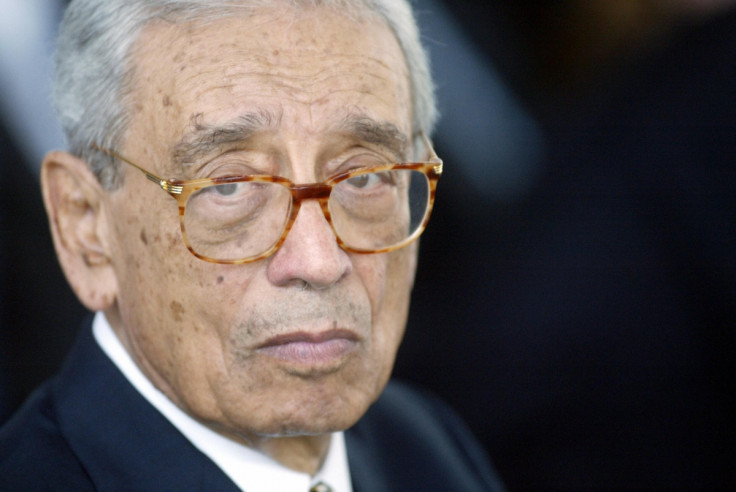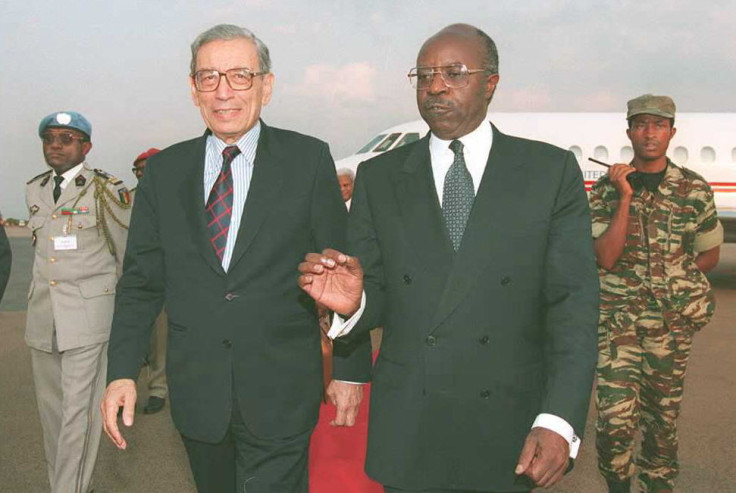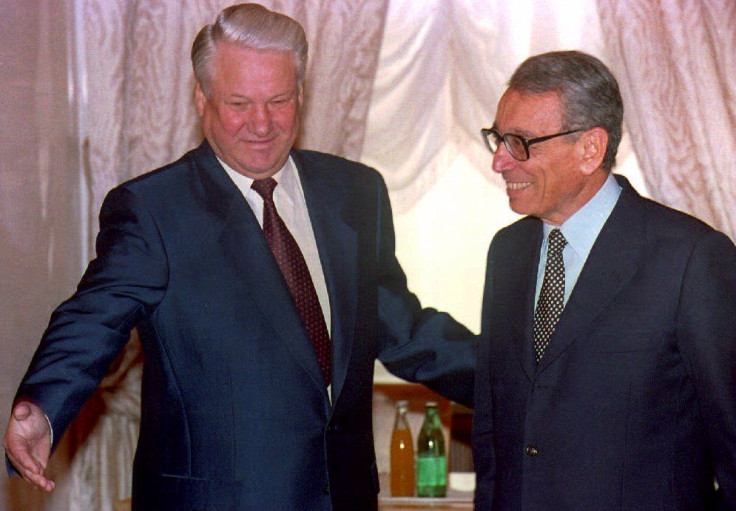Boutros Boutros-Ghali: Former UN secretary-general dies aged 93

Boutros Boutros-Ghali, the Egyptian politician and former UN secretary-general, has died aged 93. Boutros-Ghali became the sixth secretary-general of the UN in 1992 and was succeeded by Kofi Annan in 1997.
His death was announced by the current president of the UN Security Council, Venezuelan ambassador Rafael Ramirez, at the start of a session on Yemen's humanitarian crisis.The 15-member UN security council observed a minute's silence following the news.
Boutros-Ghhali died at a Cairo hospital where he was admitted for a broken pelvis, Egypt's Al-Ahram newspaper reported.
He became the first person from an African nation to be elected to the UN's top position. He took the role at a fraught time, following the collapse of the Soviet Union and the end of the Cold War. His appointment was seen as a surprise by some, who considered the move a fillip towards the 51 African nations who were part of the UN at the time.
During his time in office, he was criticised for the way the UN handled the Rwandan genocide in 1994, which left more than one million people dead. He was also castigated for not pushing hard enough for UN intervention to end the civil war in Angola despite being one of the longest-running conflicts in the world at the time, as well as failing to approve NATO bombings in Bosnia during the Kosovo crisis.
In a 2005 interview with the Associated Press, Boutros-Ghali called the Rwanda massacre his "worst failure at the United Nations", but also blamed the US, Britain, France and Belgium for stopping any potential action action by setting impossible conditions for intervention.

He also caused controversy while in Bosnia, saying there were other countries where the "total dead was greater than here" while a genocide was taking place in 1990s. When Somali warlords accused the UN and him of colonialism, Boutros-Ghali was said to have threatened to withdraw support unless they ceased fighting: "The Cold War is finished. Nobody is interested in the poor countries in Africa or anywhere in the world. They can easily forget Somalia in 24 hours."
He was praised for playing a major role in the negotiations that produced the Camp David peace framework agreements in September 1978, as well as the Egyptian-Israeli peace treaty in March 1979, the first of its kind between an Arab state and Israel.

Boutros-Ghali was born on 14 November 1922 into a wealthy family in the Coptic Christian community in Cairo. He later completed a law degree in 1946 at Cairo University. From there he earned a doctorate in international law from Paris University in 1949, leading to a life-long affection for France and the French people.
After he left the UN, Boutros-Ghali became the first general secretary of the International Organisation of La Francophonie, an organisation representing countries and regions where French is the first or customary language, from 1997 to 2002.
He leaves behind his wife Lea. His grandfather, Boutros Ghali Pasha, was Egypt's prime minister from 1908 to 1910.
© Copyright IBTimes 2025. All rights reserved.




















